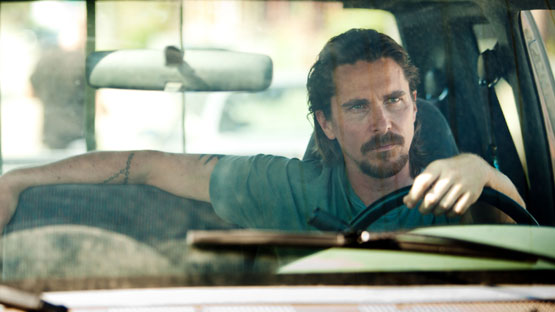Director Kenneth Lonergan’s “Manchester by the Sea” is an intensely realistic portrayal of grief, loss, and the struggle to move past heartache. The film is characterized by moving performances, powerful writing, and an evocative cinematic lens that paints a poignant portrait of human pain and resilience. In short, “Manchester by the Sea” is a cinematic masterpiece that unpacks the complexities of the human spirit in an authentic and compelling fashion.
Casey Affleck leads the film with an arresting performance as the emotionally wounded Lee Chandler. Affleck’s Chandler is a troubled janitor who is forced to confront a past steeped in tragedy upon the unexpected death of his brother. His understated, yet deeply nuanced performance pairs melancholy and reluctance perfectly and gives the audience a compelling exploration of the human response to suffering. His portrayal of a man who is both running from and wrestling with his grief is powerful, compelling, and unforgettable.
But the acting in “Manchester by the Sea” is not a one-man show. The supporting cast, including Lucas Hedges as Lee’s nephew Patrick and Michelle Williams as Lee’s ex-wife Randi, put forward performances of intense emotional depth. Hedges is a revelation in his role, delivering a convincing portrayal of a grieving teenager who wavers between maturity and juvenile petulance. Williams, despite limited screen time, leaves a lasting impression as a woman whose grief has irrevocably altered her life.
“Manchester by the Sea” is characterized by Lonergan’s meticulous storytelling. The film’s narrative structure is particularly noteworthy. Initially following a linear story, the narrative gracefully transitions into flashback sequences that provide critical context to Lee’s emotional state. The result is an effective tandem of past and present that gives viewers a comprehensive look at the unfolding story. In an era where storytelling often prioritizes shock value over complexity and depth, “Manchester by the Sea” stands out as a testament to effective narrative construction.
The film is shot in a way that enhances its storytelling. Jody Lee Lipes’s cinematography does a beautiful job at capturing the eponymous town’s wintry bleakness, which mirrors the emotional climate of the characters. The film’s use of the setting as a non-narrative element is visually stunning and thematically powerful, serving as a reflection of the protagonist’s internal state of being.
Despite its heavy themes, “Manchester by the Sea” does an excellent job at balancing tragedy with moments of lightness and humor. Much of this comes from the cleverly written, true-to-life dialogues and the naturalistic performances that deliver them. This balance of tones prevents the film from sinking into despair and lends it a sense of authenticity that resonates long after the credits roll.
The film’s music, composed by Lesley Barber, is hauntingly beautiful and complements the narrative perfectly. The choral motifs and somber orchestral passages elicit a profound emotional response without resorting to melodramatic manipulation.
However, “Manchester by the Sea” is a film that demands patience and emotional investment from its audience. Its slow-paced narrative and the stark realities it presents may not appeal to those seeking escapist entertainment.
Ultimately, “Manchester by the Sea” is a deeply moving cinematic experience that arrests the heart and engages the mind. It probes deeply into the human experience of grief and the winding road towards healing, offering no easy answers but plenty of thought-provoking questions. With its outstanding performances, potent writing, and sublime cinematography, it’s a film that leaves a cocktail of emotions and resonates deeply, serving as a perfect blend of artistry and realism.
“Manchester by the Sea” is a carefully constructed, authentically delivered narrative that makes for an intensely realistic and emotionally impactful cinema. It offers a bleak, yet strikingly beautiful exploration of human pain, resilience, and the complexities of the soul. It truly is a masterpiece of filmmaking, a testament to the power of cinema to authentically and empathetically explore the deepest corners of the human experience.



